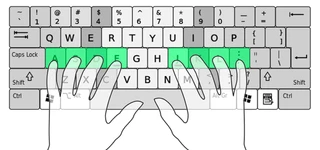20 Most Effective Classroom Management Strategies for Teachers in 2024

20–50 percent of teachers quit within their first five years of teaching, courtesy their struggles related to classroom management.
Managing a class full of students is not a child’s play. Many quit as they can’t handle the stress. Most of them complain that they weren’t made familiar with the kind of environment inside a classroom during their training days.
However, this problem can be resolved if there is sufficient knowledge about classroom management strategies. Teachers also need to work towards time management in the classroom to avoid any chaos.
How Important is Classroom Management Strategies for Teachers in 2024
From effective teaching, to controlling bad behaviour, classroom management strategies can be a saviour in many cases.

- Efficient Use of Time: Often times, the teacher is busy managing a few students and in return, is not able to manage the entire class. So, taking some time before the class starts and jotting down the tasks and procedures for the day is helpful. It helps save time and inculcates a sense of discipline in the students.
- Effective Teaching: When teachers are continuously instructing the students on what to do and what not, they tend to lose precious teaching time. Classroom management strategies for teachers help maintain an organized environment.
- Confidence Building: Classroom management strategies give a sense of confidence to the budding teachers. Since they are new in the teaching industry, with the help of these strategies, they can become strong figures in front of their students.
- Consistency in the Class: With smart classroom management strategies, teachers can inculcate consistent habits within the student. So that, whenever they don’t come to the class, or a substitute is present in the class, the students know how to behave.
- Reduced Behaviour Problems: With consistent habits, the students are less likely to cause any behavioural issue. As students will be engaged in a set of pre-defined routine, they will not find the time to cause troubles.
- Positive Class Environment: A positive class environment ensures that a student works productively and shares his opinion openly in the classroom. Without effective classroom management strategies, introvert students will not feel comfortable to speak up in front of the class. Teachers as well as students, both feel better in a positive class environment.
- Relationship Building: Teachers are able to build healthy relationships with their students. Effective classroom management strategies also help students to build positive relations with their classmates. These strategies help them interact with each other with ease and mutual respect.
- More Teaching Time: Teaching time decreases when a teacher spends more time indealing with behavioural interruptions by the students. With efficient classroom management strategies, teachers can create a productive classroom and ensure that the time spent inside the classroom is educational.
- Safety: If a teacher has control of her classroom, it is not likely that a fight or violence will happen inside the classroom. Good classroom strategies ensure that the classes are organized as well as productive. These classroom strategies ensure that the students don’t engage in any kind of fights; physical or verbal.
- Parents’ approval: Parents appreciate rules and regulations and they highly appreciate defined classroom management strategies. They are completely assured that their child is in good hands and they will grow in a positive direction.
10 Widely Popular Classroom Management Strategies in 2024
We’ve created the list of classroom management strategies that should definitely be a part of a teacher’s routine:

- Build Healthy Relationships: This is the most important classroom management strategy you should implement. When students trust their teachers, they make greater efforts of listening to them. The teachers should make an effort of knowing the students on a personal level for deeper understanding.
- Appreciate the Achievers: This is one of the most important classroom management strategies. Celebrate the hard work of the students by giving them frequent appreciations. Set milestones and identify the ones achieving them by calling out their names in the class and asking for their experience and the lessons that they learnt.
- Develop Respect, Not Authority: Teachers should set the rules on the very first day of teaching and stick to them no matter what. For those students who do not follow the rules, threaten them and set an example by informing their parents or the principal. The teachers need to be consistent with their behaviour and take the same action for every student who breaks the rules.
- Make Students Feel Involved: The rules are more effective when students are involved in creating them. You can ask the students to take their help in framing the rule they are supposed to follow. This method is better than just handing them a set of rules to follow from nowhere.
- Encourage Group Projects: For a better teamwork and to build leadership skills, you can include group projects amongst students to inculcate all these qualities. Kids love to work in groups. Students who work with each other, also tend to develop a sense of respect and partnership with one another.
- Let Students Contribute in Building Guidelines: Before starting a semester, teachers can start a discussion by asking students what they think should be made a rule. Whether phones should be allowed and when? Should questions be asked during the lecture or after? Having a discussion with the students leads to a mutually respected student-teacher relationship.
- Document Rules: As teachers hand out a syllabus, they can distribute a list of rules that is finalized at the end of the class discussion. Doing this actually symbolises that you respect their decisions and you intend to take their point of view into consideration as well. And in future if a student breaks any rule, you can easily point that out referring the document.
- Avoid Classroom Punishment: Behavioural issues can be tackled in several ways, rather than punishing a student in front of the entire class. Punishment can hurt your relationships with the students affecting all other classroom management strategies.
- Use Non-Verbal Communication: Words accompanied with actions helps in retaining the feedback better. Instruction strategies should include non-verbal communication by including gestures and expressions. Teachers can also use external content like videos and infographics to convey their point.
- Use Gamification: Gamifying personal learning plans can increase its effectiveness. For example, if a student scores 50% marks in a quiz, give him 50,000 points. Techers can also refer the next chapter as the next stage. Just like a game, students need to complete the previous chapters (a.k.a. stages) to go to the next.
Other Popular Classroom Management Strategies To Implement Right Away
- Become Mentor, Not Their Friend: Also help and support your students in dealing with their challenges as a mention, and not as a peer.
- Have a Warning System in Place: Individual warnings will help in preventing distractions in your classroom and set an example for other students.
- Deal with Problems without Any Delay: When you deal with smaller problems, you prevent them from blowing out of the proportion and affecting the learning environment.
- Prevent Clutter in the Classroom: This will help eliminate distractions and inculcate a good habit.
- Dress Professionally: Formal dressing is likely to have a positive impact on your students, who will take your instructions seriously.
- Adopt a Non-Biased Approach: Appreciate the achievers, but you should recognize whom to appreciate and when.
- Walk When You Teach: This will help in keeping a better eye on the activity of your students and improve their concentration.
- Organize Your Lessons Beforehand: This is critical to keep your students engaged and prevent the situation of lull in the classroom.
- Adopt New Classroom Discipline Ideas: Adopt interesting ways to keep your students disciplined, such as, reward the best performers.
- Get a Class Management System: Technology can aid your efforts in making the learning more effective and holistic. Classroom management software helps track students’ performance, marks, and the overall learning curve.
Effective Classroom Management with Real-Life Examples

Teachers can incorporate real world examples in the classroom to helps student think of potential solutions to deal with scenarios in their day-to-day life. Case studies, an insight into the environmental data and professional reports can broaden the horizon of learning for students.
Here are the strategies you can implement to spark excitement in learning.
- Invite real-life influencers to the classroom
- Take your class to the field trip
- Simulate real-life situations
- Ask your students to work as a team on solving a tangible, real-world problem
- Involve your students in community work
- Discuss their responsibilities in different roles within the society, such as, their responsibilities as a citizen, as a team player, as a sports captain, etc.
Now that you know about some of the most popular classroom management strategies of 2024, you may also like to read this:
Common Types of Classroom Distractions in 2024
Classroom distractions can be caused by a variety of factors. And during a distraction, not only the teacher and the student, but the whole class gets distracted. Here are a few classroom distractions that happen in the classroom:
- Late Comings: Teachers want their students to come on time because latecomers affect the concentration of the entire class. Teacher often lose their flow of teaching and have to repeat the entire study material for the late comers, causing wastage of time.
- Chatting & Jabbering: Talking is probably the most common distraction happening in a class. The student who is talking is disturbing all other students around him. The students who are involved might lose vital information and instructions.
- Over-Use of Technology: Gadgets like mobile phones and undoubtedly facilitate interactive sessions in the classroom, but the over-dependence on these can prove distraction for students. With growing influence of social media, students are often found checking their notifications as they have a fear of missing out (FOMO).
- Lack of Preparation: If a few students do not bring the required material to class for example, pen, assignment, or any study material, they end up asking for or sharing it with others. This causes chaos and disturbance in the classroom.
- Eating During the Class: If students are hungry, they won’t be able to concentrate on what the teachers are teaching. They would eventually feel like eating during the class which would disturb the ambience of the entire room with the sound of wrappers and the smell of food.
- Absent Mindedness or Lack of Concentration: Many students often daydream while attending a class. While the teacher is teaching, the student is in another world of his owns. There are cases when the student ends up discussing his or her thoughts with another students, hence causing a distraction for the whole class.
- Negative discussions: Classroom discussions are fun and are a great engagement tool as well. But a discussion should never happen between just two parties. The whole class needs to be involved, otherwise they would feel disengaged and start a discussion on their own causing massive distraction for everybody.
Most Common Types of Students in a Classroom

There are a few typical types of students that you as a teacher need to tackle. You should know who they are and how to manage their behaviour.
- The infamous clown: These kids crave attention and hence, enjoy making the class laugh. They don’t mind disturbing the class for their entertainment. As a teacher, you should maintain your cool by shutting them down. Also try to keep the class occupied with interesting topics.
- The star personality: This type of kids has a group of people following him. Their demands are easily fulfilled by their crew with the help of charisma. As a teacher you should avoid any special demands or giving any preferential treatment.
- The underdog: Every child has a certain potential that they might or might not have achieved. Identify these students and while assigning group assignment, put them with a group of achievers. This will help the student to unleash their full potential.
- The teacher’s favourite: These students ask for the teacher’s approval even on the tiniest details. They will seek your attention and also ask a lot of questions. They should be warmly told that they have the ability to get things done without the intervention of other students or teachers.
- The Argumentative one: This type of student argues a lot with their peers as well as the teacher. This behaviour should not be entertained and by asking them to have the discussion outside the class. Else, you will end up affecting the flow of the class. Also, never confront the student in a group discussion, as it will have a negative impact on others.
- The one who misbehaves: This child will behave in a manner which is not acceptable out of fun or because he or she seek attention. Make the student understand his mistakes by describing in detail the impact of their behaviour. In serious cases, keep the parents and principals in the loop.
- The hyperactive one: This type of student has a very low attention span. You can assign them responsibilities like managing the class when the nobody is present.
We hope, this article provides the answer to all our classroom management woes. The importance of classroom learning is crucial. You can easily learn classroom management strategies if you practice them a few times.
You can also take the help of classroom management software. They can be a huge saviour for the new teachers and for the teachers who are changing schools. These classroom management skills will not only help the teachers to manage a class, but also prove to be detrimental factors in the life of students after school. We have also listed down the top 5 free software for classroom management.
The Techjockey content team is a passionate group of writers and editors dedicated to helping businesses make informed software buying decisions. We have a deep understanding of the Indian software market and the challenges that businesses face when choosing the right software for their needs. We are committed... Read more






















